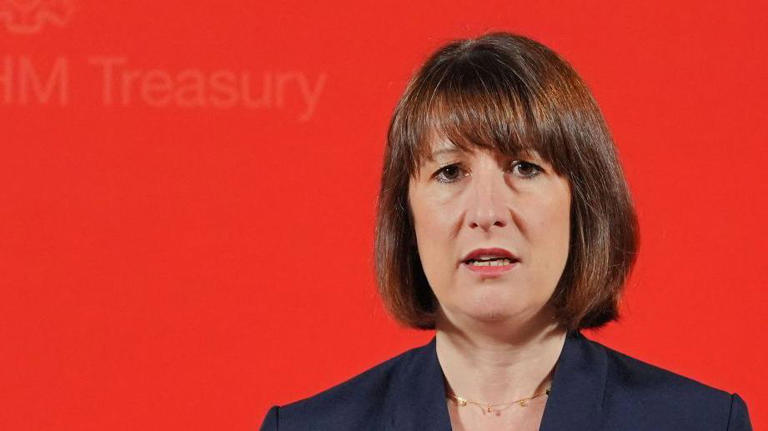On Monday, Chancellor Rachel Reeves is set to reveal a substantial set of immediate cuts aimed at addressing a significant £20 billion deficit in the public finances. This announcement will be a pivotal moment for the new government as it confronts the financial challenges left by its predecessors and seeks to restore economic stability.
Reeves’ plan includes halting or postponing major infrastructure projects that were high on the government’s agenda but are now deemed unsustainable given the current fiscal constraints. Among the projects potentially affected are the controversial road tunnel under Stonehenge, the ambitious New Hospital programme initiated by former Prime Minister Boris Johnson, and the Euston section of the HS2 high-speed rail line. These projects, which were once symbols of infrastructural progress, are now under scrutiny as part of a broader effort to curtail spending and address the budgetary shortfall.
In addition to scaling back on infrastructure, Reeves plans to reduce expenditures on external consultants and address public sector inefficiencies. This includes a drive to cut down on wasteful spending within government departments. By targeting these areas, the Chancellor aims to plug the financial gap and realign the budget with the country’s economic realities. The decision to reduce spending on consultants and other external services reflects a commitment to streamline government operations and enhance fiscal responsibility.
The announcement will be accompanied by a Treasury internal audit of the public finances, which is expected to confirm a £20 billion shortfall between the government’s tax revenues and its planned expenditures. The audit is anticipated to reveal that the situation is even worse than previously understood, with additional demands on the budget coming to light as new ministers scrutinized departmental accounts in detail. This grim revelation underscores the urgency of Reeves’ proposed measures.
In her address to Parliament, Reeves will argue that immediate action is necessary to stabilize the economy and address the severe financial imbalances. She will likely emphasize the need to restore confidence in the government’s fiscal management and to lay a foundation for long-term economic stability.
The Conservative Party has been quick to criticize Reeves’ approach. They argue that her message is a political ploy designed to justify future tax increases. According to the Conservatives, the state of the public finances was already clear before the election, and Reeves’ current narrative is an attempt to shift the blame and create a pretext for raising taxes.
Despite these criticisms, Reeves is expected to avoid proposing tax hikes at this juncture. Instead, she will call on the Office for Budget Responsibility (OBR) to assess the public finances and initiate a comprehensive Spending Review. This review will examine departmental budgets over the longer term and provide a framework for managing public spending. By opting for a Spending Review rather than an immediate tax increase, Reeves aims to demonstrate a commitment to fiscal prudence while also maintaining her party’s manifesto pledge not to raise personal tax rates, including income tax.
Reeves is also anticipated to address public sector pay in her announcement. She is expected to confirm that some public sector workers will receive salary increases in accordance with recommendations from independent pay review bodies. This would involve above-inflation pay settlements for key groups such as teachers, armed forces personnel, and prison staff. However, this commitment will require additional funding, which will need to be balanced against the need for further austerity measures.
To support these efforts, Reeves will introduce a new “Office of Value for Money.” This office will be tasked with identifying and recommending savings across government spending. It will focus on cutting wasteful expenditures and ensuring that every pound spent delivers value for taxpayers. The creation of this office reflects a broader strategy to enhance efficiency and accountability in public spending.
Recent revelations have highlighted additional pressures on the government’s finances. Home Secretary Yvette Cooper disclosed that the Conservative plan to remove asylum seekers to Rwanda has cost taxpayers £700 million, nearly double the previously reported figure. Similarly, Environment Secretary Steve Reed has identified significant shortfalls in funding for flood defenses, further complicating the government’s budgetary situation.
In response to these developments, the Conservative Party has accused the new government of distorting the financial reality. Former Tory Chancellor Jeremy Hunt has criticized the current administration for its portrayal of the economy, arguing that the figures show a healthy and growing economy rather than a crisis. On the other hand, Gareth Davies, Shadow Exchequer Secretary to the Treasury, has accused Reeves of misleading taxpayers with her cost-saving measures while secretly planning to raise their taxes.
Overall, Rachel Reeves’ announcement represents a critical moment in the UK’s economic policy. The measures she introduces will have far-reaching implications for public spending, infrastructure projects, and tax policy. As the Chancellor navigates these challenges, her ability to address the fiscal deficit while maintaining public confidence will be closely watched. The coming weeks will be crucial as the new government sets the course for economic stability and fiscal responsibility in the face of considerable financial pressures.
